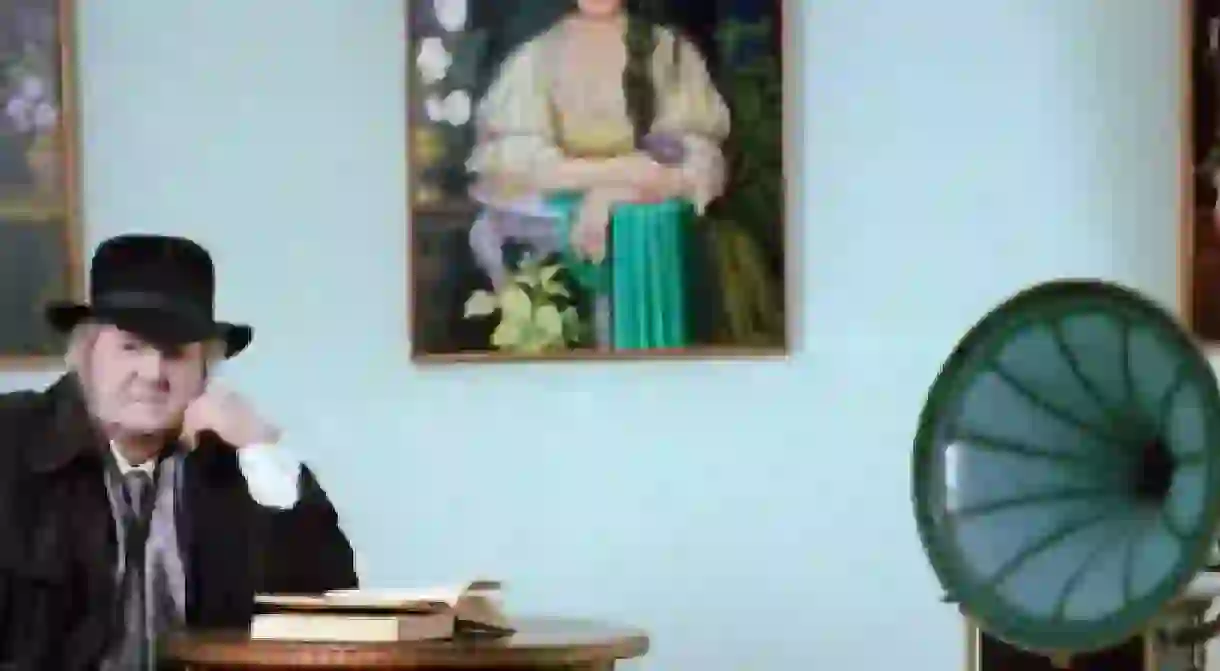Cultural Politics: Photographing Soviet Palaces Of Culture

Relics of a different political and social condition, the former Soviet Union’s Palaces of Culture – also known as DKs, or Dvrortzi Kultury – still decorate Russia‘s towns and cities. Russian photographer Dmitry Lookianov visited over 30 for his captivating DKDance series. We talk to the artist about his life, and his project.

Hi, Dima! Tell us: what’s your story?
In a few words: I was born in Krasnodar, a city near the Black Sea in southern Russia. When I graduated from school I moved to
Moscow and tried to study Physics in one of the biggest Universities. But in my 4th year of education I realized that it was not my scene, so I dropped out and devoted all my free time to extreme sports. Around the same time I began to think about running my own business. The first attempts were pretty exciting and successful.
Some time later, I ran a tailoring company. It took me 5 years. Despite the fact that things were going well, I felt disappointed in this kind of activity. I became interested in creativity, tried to draw. That time I bought my first camera and started shooting.
Since then, my life has been completely tied to photography.
For the last three years I’ve been studying at the Rodchenko Art School.


What inspired the DKDance series?
For the first time I thought that it would be great to make a project about Palaces of Culture (Dvrortzi Kultury, or DKs) while I was shooting a series about Moscow wrestlers. Their club was located in the building of a DK, ‘Avant-garde’. I couldn’t stay indifferent because of the activities which were there and it stuck in my mind. I visited some more interesting DKs over a year, and I realized that it could become a full documentary work.
Tell us about the people who appear in your photographs.
The people in the photos are mostly cultural workers: teachers of different workshops, service staff as well as representatives of local intelligentsia: painters, sculptors, musicians, actors of local theatre schools and so on. Most of the people have been working in DKs for very long time, some of them more than 30 years.


What do you care about the most when taking photographs?
When I work on projects I’m equally concerned about formal and semantic components of images. A form for me is like a bait that helps to catch even the most inattentive viewer. In my opinion, a photo should not be only beautiful and artistic, but a found visual solution should meet best the concept of the project, stress it and strengthen it.
For this reason, I try to learn a lot about what I shoot in a process. I read, reflect and constantly improve the technique of shooting and find solutions which are suitable for me.
For example right now for a new project, which is less documentary, I’m working a lot with artificial light, studying carefully the composition of shots, building a stage setting, picking locations and props.


How would you describe the current photography landscape in Russia?
I think that Russia today is one of the most interesting and attractive places for documentary photographers if to speak about the choice of subjects and visual appeal of the landscape. That’s why so many foreign photographers love to come here. But we have plenty of very talented young people here who make excellent projects with full dedication and deep understanding of the work. It’s easy to notice that more and more Russian names of new generation of photographers appear in various international competitions and exhibitions.
Tell us your favourite book (and it does not have to be about photography!).
It’s difficult to single out one book or one author. As for fiction, it is Franz Kafka, Thomas Pynchon, Strugatsky brothers.
And as for philosophy I like to read Friedrich Nietzsche Jean Baudrillard, Boris Groys.








All images © Dmitry Lookianov
Answers by Dmitry Lookianov | Questions by Ewa Bianka Zubek
Answers 2 & 3 previously appeared in an interview on Slate.com (courtesy of Dmitry Lookianov)













